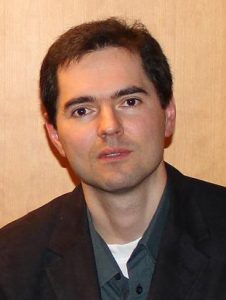
| Topic: | Machine learning outside of comfort zone: interplay between (non)linearity, basis sets, and dimensionality |
|---|---|
| Speaker: | Dr Sergei Manzhos Associate Professor, School of Chemistry and Chemical Technology, Tokyo Institute of Technology |
| Date: | Tuesday, 6 December 2022 |
| Time: | 1.00pm to 2.00pm |
| Venue: | Seminar Room EA-06-03 Block EA, Level 6, College of Design & Engineering, NUS (Click here for location map.) |
| Host: | Asst Prof Wang Hao |
![]()
Machine learning (ML) based methods have by now firmly established themselves in natural sciences. Specifically in the area of computational modeling of materials and related fields, the generality of popular ML techniques such as neural networks or kernel methods permitted their application to diverse problems from prediction of properties of functional materials (catalysts, solid state ionic conductors, etc.) from descriptors to the building of interatomic potentials (where ML is currently routinely used in applications) and electron density functionals. ML is typically used for its ability to extract implicit knowledge in a black-box way with general approaches, as an alternative to using functions based on intuition or analytics. This is often done at the cost of a loss of physical insight. ML techniques are assumed to have the superior expressive power of nonlinear methods, and are often used “as is”, with concepts such as “non-parametric” or “deep learning“ used without a clear justification for their need or advantage over simpler and more robust alternatives.I will highlight some interrelations between popular ML techniques and traditional linear regressions and basis expansions and demonstrate that in certain regimes (such as a very high dimensionality) these approximations might collapse. I will also discuss ways to recover the expressive power of a nonlinear approach and to help select hyperparameters with the help of high-dimensional model representation and to obtain elements of insight while preserving the generality of the method
![]()

Sergei Manzhos is Associate Professor at the School of Chemistry and Chemical Technology, Tokyo Institute of Technology. He holds a master’s degree in radio physics and electronics from Kharkiv National University, Ukraine (1999) and a Ph.D. in chemistry from Queen’s University, Canada (2005). He was NSERC Postdoctoral Fellow at the University of Montreal, Canada, in 2005-2008. In 2008-2012 he was Project Assistant Professor at the University of Tokyo, and in 2012-2019 Assistant Professor and group leader at the Department of Mechanical Engineering, National University of Singapore. He was Associate Professor at the Centre Énergie Matériaux Télécommunications, Institut National de la Recherche Scientifique of the University of Québec system before joining Ihara-Manzhos lab at the Tokyo Institute of Technology in 2021. Professor Manzhos’s research interests include modeling of materials for electrochemical power sources, computational spectroscopy, and machine learning.
Web: https://sites.google.com/site/sergeimanzhos/; http://www.chemeng.titech.ac.jp/~iharalab/

